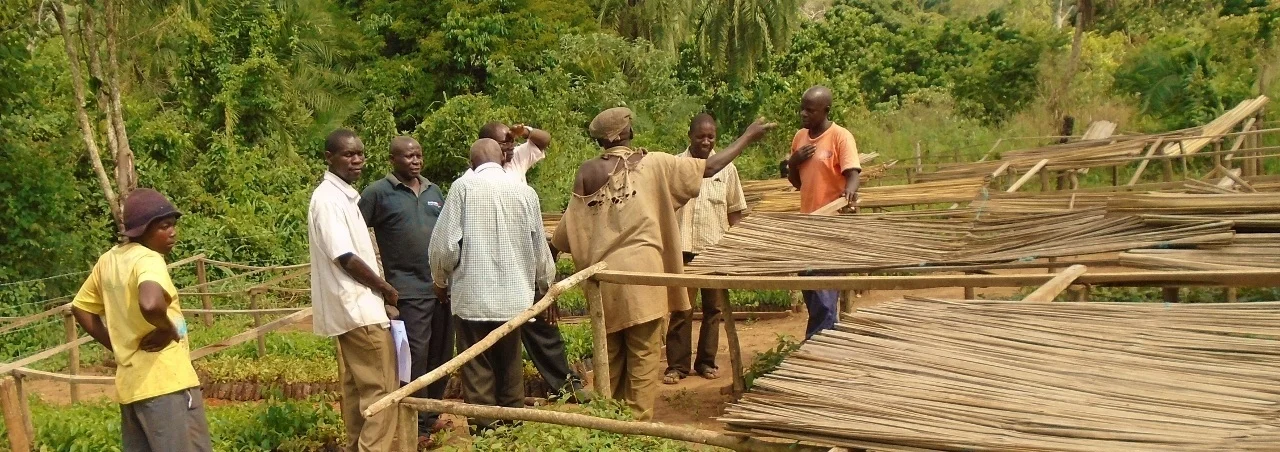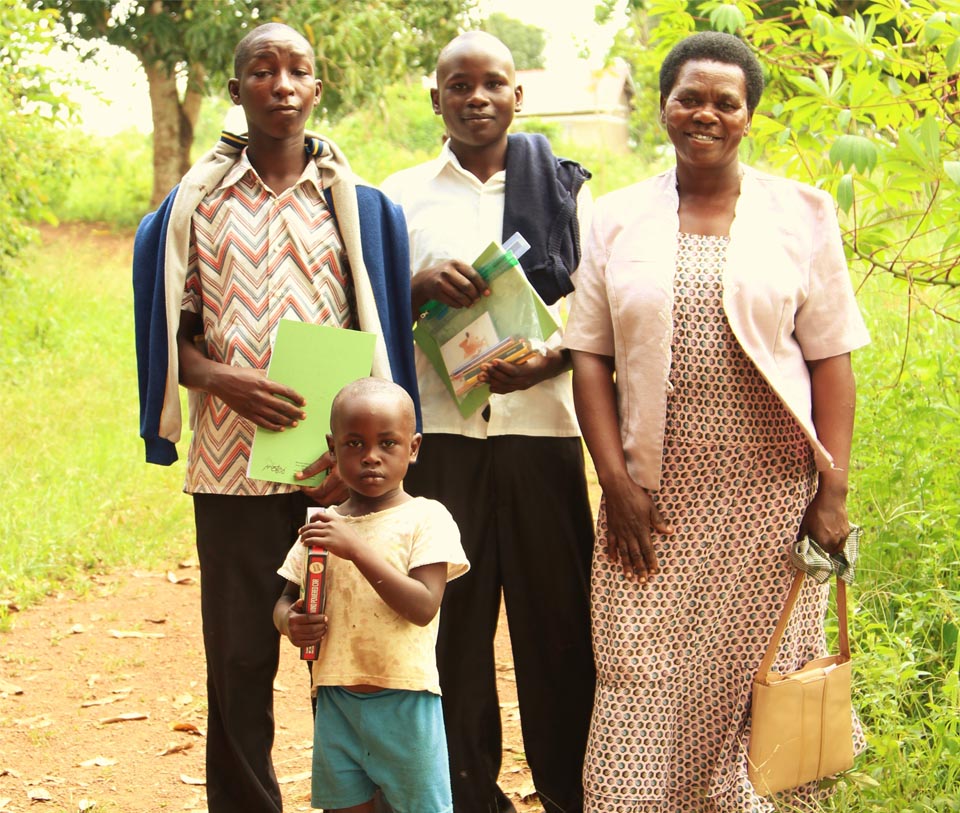The Bulindi Chimpanzee & Community Project
The Bulindi Chimpanzee & Community Project (BCCP) strives to safeguard 300 wild chimpanzees clinging to survival in fast-disappearing, unprotected habitat in Uganda. Project activities focus on a) offering people who live in close proximity to chimps alternatives to deforestation, b) investing in children’s education, and c) improving quality of life. The result: more sustainable management of local forest, and increased tolerance of the chimps. BCCP’s ultimate goal is long-term coexistence of people and chimps living outside Uganda’s protected forests. BCCP, established in 2014, is led by researcher Dr. Matt McLennan, project manager Moses Ssemahunge. and co-director Jackie Rohen.
1) engaging community leaders, rebuilding forests & creating jobs
BCCP began as a pilot project aimed at halting widespread deforestation and increasing long-term survival of one of 10 chimp communities within an important wildlife corridor. BCCP’s founders recognized that protecting the chimpanzees could only be accomplished by addressing the welfare of local people, and coupling it with wildlife monitoring and community outreach. The pilot results exceeded all expectations, by stemming deforestation, improving tolerance of the chimps, and allowing natural forest to begin regenerating.
Since then, BCCP has rapidly expanded. It now operates five tree nurseries that help people living near five of the 10 chimpanzee communities. Hundreds of thousands of tree seedlings are distributed annually, including fast-growing native trees; eucalyptus for household woodlots; and coffee as a ‘chimp friendly’ cash crop (chimps do not eat any part of the coffee plant and farmers do not have to clear new land for cultivation). The nurseries employ local people, and experienced monitors oversee seedling management and planting success. A coffee cooperative is in development.
2) sending children to school
Some land owners cut down trees in order to pay for their children’s education. BCCP’s pilot showed that helping forest-owners cover school fees was a powerful deterrent to forest-cutting. Sponsoring schoolchildren not only addressed a main driver of deforestation, but it also invested in the next generation of local forest owners who will ultimately decide the future fate of the chimpanzees and their habitat.
BCCP is currently 54 young people to continue their education.
3) community development
As the project has grown, so has its community outreach. BCCP and its partners are creating bore holes, providing safe water for thousands of villagers, and reducing encounters between people and chimpanzees. The project has provided hundreds of energy-saving stoves that reduce the need to cut trees for fuelwood. BCCP is also offering school conservation education, including construction of tree nurseries at two schools so as to teach and model sustainable farming.
4) saving chimps
Daily monitoring has quickly expanded from a single community to 4 communities of chimpanzees, with the largest community numbering between 35 and 40 chimps. Conflict between chimpanzees and local people has lessened, and monitoring has meant jobs for a number of local people. Corridor replanting is beginning, so as to connect remaining forest fragments along rivers and assist chimpanzee movement.
To learn more, visit the BCCP website. Here you can watch videos, learn more about the ingenious ways that chimpanzees deal with forest loss, “meet” some of the chimpanzees living here, and discover more about Dr. Matt McLennan’s groundbreaking research.
Globally, forests are under siege by agriculture, and threatening great ape populations in Africa and Asia. But this project is successfully helping people, chimps, and forests! We hope you’ll consider giving them your support.



